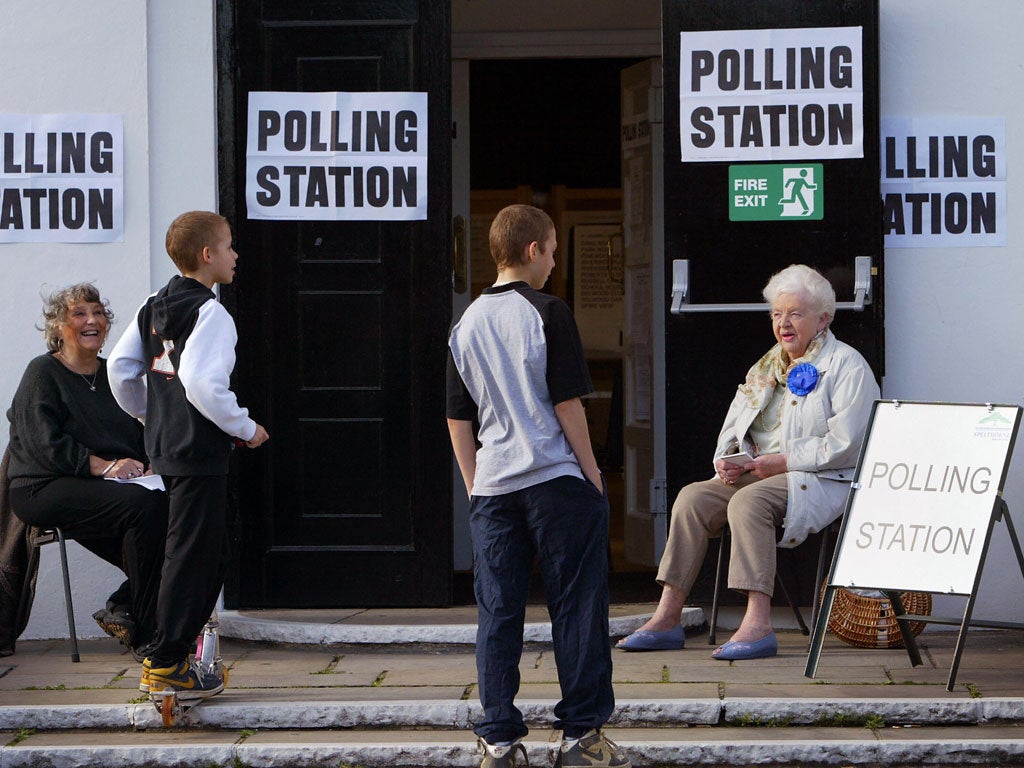If teenagers were keen to vote, it could transform Britain


Your support helps us to tell the story
From reproductive rights to climate change to Big Tech, The Independent is on the ground when the story is developing. Whether it's investigating the financials of Elon Musk's pro-Trump PAC or producing our latest documentary, 'The A Word', which shines a light on the American women fighting for reproductive rights, we know how important it is to parse out the facts from the messaging.
At such a critical moment in US history, we need reporters on the ground. Your donation allows us to keep sending journalists to speak to both sides of the story.
The Independent is trusted by Americans across the entire political spectrum. And unlike many other quality news outlets, we choose not to lock Americans out of our reporting and analysis with paywalls. We believe quality journalism should be available to everyone, paid for by those who can afford it.
Your support makes all the difference.Politicians have long known that they have a problem with young electors. In 2010, most of them didn’t vote at all. Fresh research by YouGov, for the education charity Speakers for Schools, suggests that solving the problem is a huge task – but success could transform Britain’s political culture.
We polled 700 16- to 18-year-olds across Britain. Most think our political system is “outdated and old-fashioned”. Asked to choose words to describe politics today, they are far more likely to say “boring” and “confusing” than “exciting” and “engaging”.
What, though, should be done? There is far more support for reforming the way we vote than lowering the voting age. More than two in three want the chance to vote online, or via their smartphone – but only 43 per cent think 16-year-olds should be allowed to vote at all. They are outnumbered by the 52 per cent who want to keep the voting age at 18 or raise it to 21.
Part of the explanation is that under-18s are far more enthusiastic about this reform than those who are already 18 and would not benefit from the change. But even among 16-year-olds, enthusiasm is less widespread than might be expected, with 56 per cent wanting to lower the voting age as against 36 per cent.
If the voting age were lowered to 16, and online voting allowed, then the parties would be forced to take more notice of younger voters. Think of the current argument about student tuition fees. Labour is promising to cut the maximum fee from £9,000 to £6,000 a year from September 2016 – especially attractive to today’s 16- and 17-year-old sixth-formers. Extra votes from them in key marginal seats, and Ed Miliband’s chances of toppling David Cameron would improve significantly.
The priorities of 16- to 18-year-olds differ from those of their parents and grandparents. They care more about equal opportunities, the environment and a living wage than issues such as immigration, Europe, crime or welfare benefits. These findings support the main conclusion of our poll. If the voting age were lowered and online voting allowed, the ripples would spread throughout our political culture – and the grip on government policies of the over-60s, the age group most likely to use their votes, would be greatly weakened.
Peter Kellner is president of YouGov
Join our commenting forum
Join thought-provoking conversations, follow other Independent readers and see their replies
2Comments